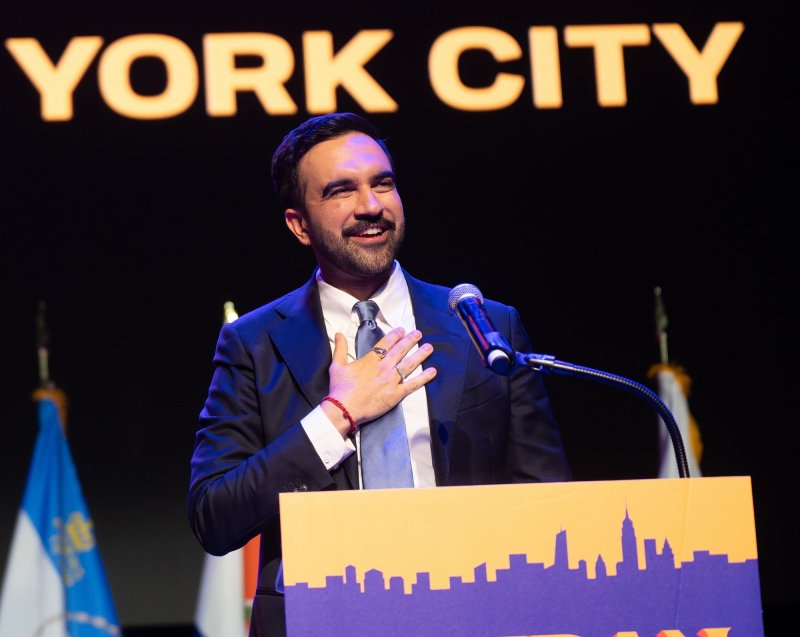BY MOSHE HILL COMMUNITY CORNER AUGUST 07 2024
After a six-hour-long contentious hearing in Mineola, the Nassau County Legislature just passed the “Mask Transparency Act,” which was introduced by Legislator Mazi Pilip, which makes wearing a mask in public spaces for the purposes of hiding your identity a misdemeanor. A packed chamber was the grounds for open debate between legislators, a rowdy viewing crowd, and at least one arrest.
As the meeting began, the Legislature saw a small group of protesters, with a dozen pro-Palestinian demonstrators and a few pro-Israel counter-protesters. That was nothing compared to what was happening inside, where the atmosphere was tense and highly charged, with legislators and attendees often shouting, reflecting the polarized views on the proposed legislation.
The bill’s supporters argued that it was a necessary measure to curb rising incidents of violence and hate speech at protests. Congressman Anthony D’Esposito, a vocal advocate for the bill, opened the discussion by highlighting the dangers posed by masked individuals at protests. He cited recent events, including flag burnings at Union Station and violence on educational campuses, as evidence of the increasing threat. “This county has seen a startling rise in anti-Israel, anti-America protests,” D’Esposito stated, adding that “these protesters are bad actors who burn the American flag while proudly brandishing Hamas and Hezbollah banners while hiding behind masks.”
He stressed that the bill was not intended to target individuals wearing masks for health or religious reasons, nor the elderly or sick, but rather those who use masks to avoid accountability for criminal activities. “It is vital for these bad actors to remove the masks and get seen in the light,” he emphasized.
State Senator Patricia Canzoneri Fitzpatrick, representing the 9th Senate District, echoed these sentiments, asserting, “This does not apply to individuals wearing a mask for their health. This is for protests whose sole intent is to promote hate speech and harassment.” She underscored the bill’s focus on intent, calling for clarity and urgency in passing the legislation. “This is about intent to do harm. Let’s not play games.”
Senator Jack Martins supported the measure by drawing a parallel with car license plates, suggesting that just as vehicles must be identifiable, so should individuals at protests. He emphasized, “This is about accountability. This is about enforcing the law that we have sworn to do.”
Senator Steve Rhoads framed the bill as a response to the state’s repeal of a 175-year-old mask law, asserting, “This is an attempt to ensure that peaceful protest remains peaceful.” He invoked the “Never Again” ethos, a rallying cry against anti-Semitic violence, to underscore the moral imperative of the legislation.
Opponents of the Mask Transparency Act voiced concerns about potential unintended consequences, particularly for marginalized communities. They warned that the bill could disproportionately impact black and brown individuals, potentially leading to racial profiling. “I firmly believe the unintended consequences will outweigh the intentions,” one critic argued, adding that the legislation could exacerbate existing inequalities.
There were also legal concerns about the bill’s constitutionality and the lack of clear guidelines for law enforcement. Legislator Delia DeRiggi-Whitton expressed doubts about the bill’s effectiveness and legality, stating, “We agree with the intent, but it’s a poorly written bill.”
Legislator Arnold W. Drucker criticized the bill for being too broad and emotionally driven. “Remove the emotion from this. We propose changes,” he said, revealing that an alternative bill had been filed that morning but was not considered by the majority.
The debate also featured moments of partisan tension. Legislator John R. Ferretti Jr. defended the bill’s bipartisan nature, asserting, “This is a bipartisan bill. Members of the minority helped with this.” However, Seth Koslow countered, claiming, “This is not a bipartisan bill. We all agree that we have to do something, but we don’t agree as a legislature.”
Presiding Officer Howard Koppel acknowledged the possibility of future amendments, suggesting that the bill could evolve over time. “We’re not ignoring the Democrat bill. There’s no reason we can’t revisit this and make amendments,” he noted.
Public testimonies were equally passionate. Abraham Hamram, a Jewish rights activist and attorney, shared his personal experiences of ethnic cleansing and displacement, emphasizing the need for the bill. “These people cannot remain masked up while terrorizing people in the United States,” he declared.
Jewish advocates for the bill cheered loudly when proponents of their position got up to speak, which spurred those against the measure to begin shouting, as well. After several warnings from police inside the chamber, one woman in the crowd was so disruptive that police were forced to remove her.
Nassau County Police Commissioner Pat Ryder testified on how the new law would be implemented. He highlighted the practical challenges faced by law enforcement when dealing with masked protesters. He noted, “We cannot act when people get violent in a crowd because when we enter a crowd to arrest someone who throws rocks and wears a mask, it escalates things.”
Despite the heated debate and differing opinions, the common ground among many participants was the desire to protect the community from hate and violence. As Mazi Pilip, the sponsor of the bill, stated, “This legislation was written for one single purpose: to keep our residents safe.”
The meeting stretched into the evening, as a second round of public comments came around, and several mask-wearing individuals testified on how important it is to still be scared of Covid-19. There were multiple calls from this to actually pass a mask mandate, forcing everyone to wear masks at all times, and to redeclare a Covid health emergency.
After over six hours of debate and hearings, the Legislature voted along party lines in favor of the resolution. All 12 Republicans voted in favor, and all 7 Democrats abstained. The bill is headed to County Executive Bruce Blakeman’s desk, where he is expected to sign it.



